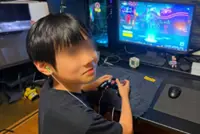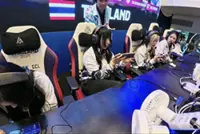Dutch eSports team turns to brain exercises to enhance performance. — AFP Relaxnews
The days of playing your favourite game for hours at a time to stay competitive in esports are gone, with gamers now focusing on brain development, if one leading team is to be believed.
At the Team Liquid training centre in the Dutch city of Utrecht, coach David Tillberg-Persson, alias “Fuzzface”, frowns and scratches his beard, focused, eyes glued to a screen.





